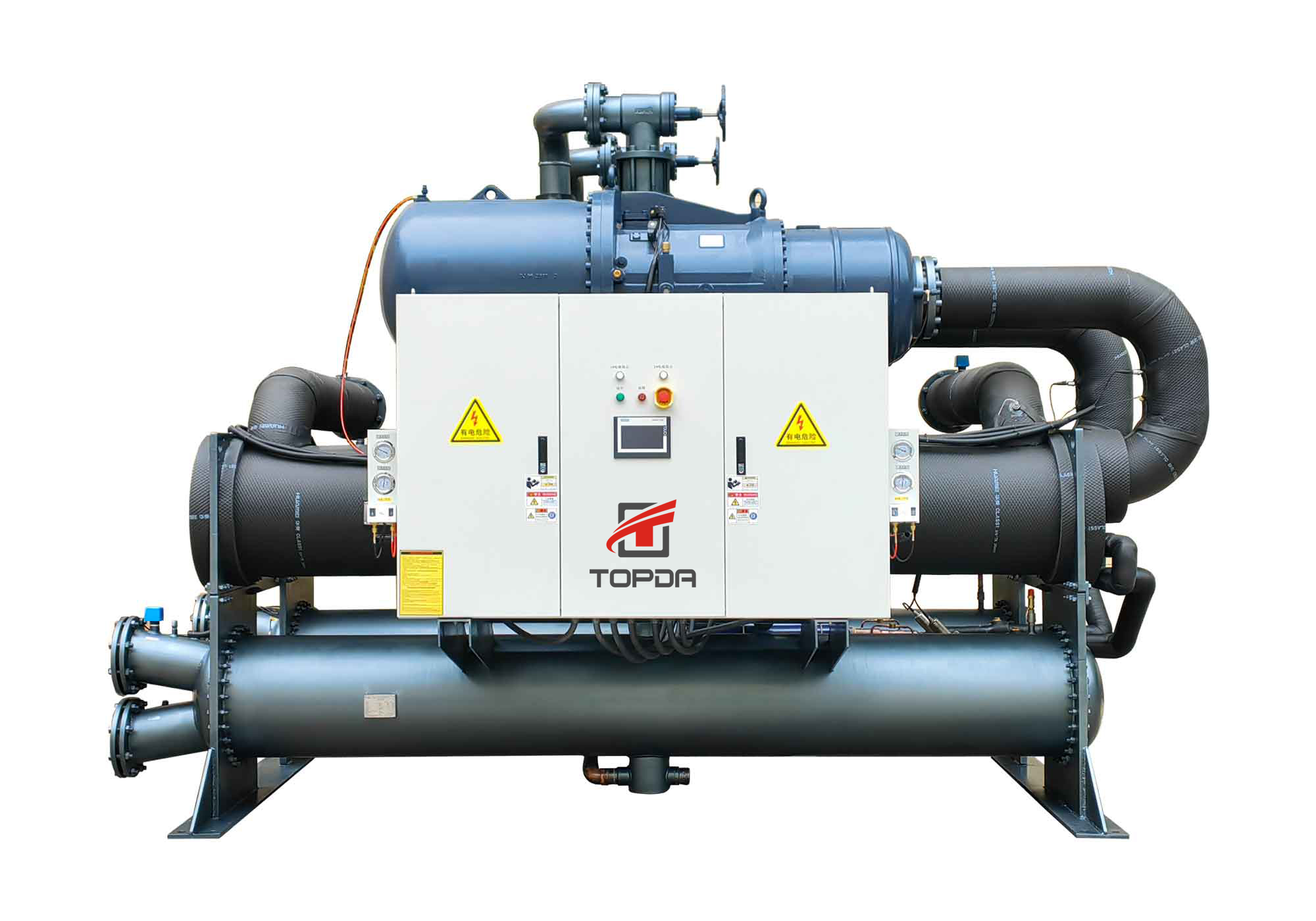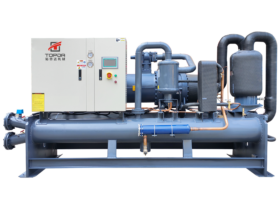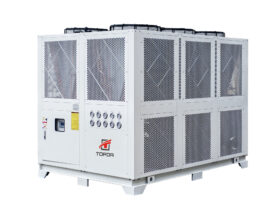
I’m excited to take on this project! Here is the article "How Does an Industrial Chiller Work" in HTML format, strictly adhering to the guidelines:
What is an Industrial Chiller?
An industrial chiller is a critical component in many industrial processes, particularly in manufacturing, processing, and HVAC systems. It is a device that uses refrigeration to cool a fluid, usually water or a water-glycol solution, which is then used to cool equipment, machinery, or buildings. Industrial chillers are designed to provide a precise and consistent temperature, usually between 40°F and 70°F (4°C and 21°C), to ensure optimal performance and efficiency.
Components of an Industrial Chiller
Refrigeration System
An industrial chiller consists of several key components:
- Compressor: responsible for compressing the refrigerant, which raises its temperature and pressure.
- Condenser: cools the hot refrigerant gas, allowing it to condense into a liquid.
- Expansion Valve: reduces the pressure and temperature of the refrigerant, allowing it to expand and become a cold, low-pressure gas.
- Evaporator: where the cold refrigerant absorbs heat from the coolant, causing it to evaporate and become a hot gas.
Cooling System
The cooling system consists of:
- Cooling Tower: a device that dissipates heat from the coolant to the atmosphere.
- Pump: circulates the coolant through the system.
- Heat Exchanger: allows heat to be transferred from the coolant to the industrial process.
Control System
The control system is responsible for monitoring and controlling the chiller’s operation:
- Sensors: monitor temperature, pressure, and flow rates.
- Controllers: adjust the chiller’s operation based on sensor data.
- Actuators: control the chiller’s components, such as the compressor and valves.
How Does an Industrial Chiller Work?
Refrigeration Cycle
The refrigeration cycle is the process by which the chiller cools the coolant. Here’s a step-by-step explanation:
- The compressor compresses the refrigerant, raising its temperature and pressure.
- The hot refrigerant gas is cooled in the condenser, causing it to condense into a liquid.
- The expansion valve reduces the pressure and temperature of the refrigerant, allowing it to expand and become a cold, low-pressure gas.
- The cold refrigerant absorbs heat from the coolant in the evaporator, causing it to evaporate and become a hot gas.
- The hot gas is compressed again in the compressor, and the cycle repeats.
Cooling Process
The cooling process is the process by which the chiller cools the industrial process:
- The coolant is pumped through the heat exchanger, where it absorbs heat from the industrial process.
- The heated coolant is then pumped through the cooling tower, where it is cooled by air or water.
- The cooled coolant is then recirculated through the heat exchanger, cooling the industrial process.
Benefits of Industrial Chillers
Increased Efficiency
Industrial chillers provide a precise and consistent temperature, which can improve the efficiency of industrial processes.
Reduced Energy Consumption
By cooling only what is necessary, industrial chillers can reduce energy consumption and costs.
Improved Product Quality
Industrial chillers can help maintain optimal temperature conditions, which can improve product quality and reduce defects.
Extended Equipment Life
By reducing heat buildup and stress on equipment, industrial chillers can help extend the life of industrial equipment.
Common Applications of Industrial Chillers
Manufacturing
Industrial chillers are commonly used in manufacturing to cool machinery, equipment, and processes.
Processing
Industrial chillers are used in processing to cool chemical reactions, food processing, and pharmaceutical manufacturing.
HVAC Systems
Industrial chillers are used in HVAC systems to cool buildings, data centers, and other large spaces.
Oil and Gas
Industrial chillers are used in the oil and gas industry to cool equipment and processes.
Frequently Asked Questions
- How does an industrial chiller work?
- An industrial chiller works by using refrigeration to cool a fluid, which is then used to cool equipment, machinery, or buildings.
- What are the benefits of industrial chillers?
- Industrial chillers provide a precise and consistent temperature, reduce energy consumption, improve product quality, and extend equipment life.
- What are common applications of industrial chillers?
- Industrial chillers are commonly used in manufacturing, processing, HVAC systems, and oil and gas industries.
Conclusion
In conclusion, industrial chillers are an essential component in many industrial processes, providing a precise and consistent temperature to ensure optimal performance and efficiency. By understanding how industrial chillers work, we can appreciate the importance of this technology and its numerous benefits. Whether you’re in manufacturing, processing, or HVAC systems, industrial chillers can help you achieve your goals and improve your bottom line.
References
- [1] ASHRAE (American Society of Heating, Refrigerating and Air-Conditioning Engineers). (2019). Industrial Chillers.
- [2] Chiller Systems (2019). How Does an Industrial Chiller Work?
FAQs
- How does an industrial chiller work?
- An industrial chiller works by using refrigeration to cool a fluid, which is then used to cool equipment, machinery, or buildings.
- What are the benefits of industrial chillers?
- Industrial chillers provide a precise and consistent temperature, reduce energy consumption, improve product quality, and extend equipment life.
- What are common applications of industrial chillers?
- Industrial chillers are commonly used in manufacturing, processing, HVAC systems, and oil and gas industries.
- How do industrial chillers improve product quality?
- Industrial chillers help maintain optimal temperature conditions, which can improve product quality and reduce defects.
- How do industrial chillers reduce energy consumption?
- Industrial chillers reduce energy consumption by cooling only what is necessary, rather than cooling the entire facility or process.
I hope this article meets your requirements! Let me know if you need any further changes.












Leave a Reply